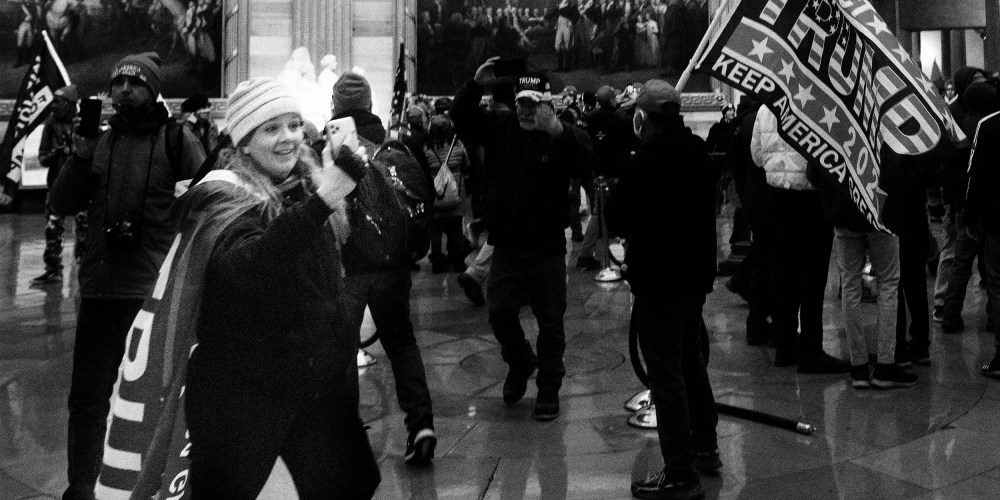Editor’s note: This article has been updated to include the fact that a judge ruled late on Friday to grant Jenny Cudd’s request to leave the country for a pre-planned trip to Mexico.
Jenny Cudd didn’t think a little thing like being charged with two federal crimes for her role in the Jan. 6 attack on the Capitol should stand in the way of her being allowed to travel to Mexico for a weekend retreat.
There’s nothing like employees frolicking with a Trump-loving insurrectionist to really enhance “bonding” in the workplace, right?
Cudd’s lawyer on Monday filed a motion to allow his client, who wore a Trump flag draped over her shoulders like a cape as she and thousands of others laid siege to the Capitol, to leave the country this month to attend a “work-related bonding retreat for employees and their spouses.” There’s nothing like employees frolicking with a Trump-loving insurrectionist to really enhance “bonding” in the workplace, right?
Before the judge could rule on the request, a grand jury on Wednesday charged Cudd with three additional crimes, including a felony for obstructing a congressional proceeding, which carries up to 20 years in jail. Given the additional charges, you would think Cudd’s application for a Mexico vacation would’ve been denied. But late on Friday, a judge granted Cudd’s request to leave the country to attend her getaway.
As outrageous and nauseating as that ruling sounds, no one should be surprised. Cudd was simply following her instinct that as a white person she has privileges — privileges that people of color don’t.
And, painfully, she’s right — especially when it comes to our criminal justice system. As we see time and again in the news, and as numerous studies point out, white people are treated far better than people of color, from their first interaction with law enforcement through sentencing.

Cudd’s case is a show-and-tell of how bad the system is. Even before the new charges were filed, she had been facing only two misdemeanors and was released on her own recognizance, without bail, and with minor conditions — such as not being able to leave the country without permission. This despite her bragging on social media shortly after the attack, saying “I f–king charged the Capitol today,” and, “Hell yes, I am proud of my actions.”
Cudd’s case is a show-and-tell of how bad the system is.
She also boasted, “We did break down Nancy Pelosi’s office door.” And after learning Capitol Officer Brian Sicknick had died from injuries sustained during the attack, she appeared on local media declaring defiantly, “I would do it again in a heartbeat.”
Compare Cudd’s treatment to that of Kalief Browder, a 16-year-old Black teenager arrested in New York City in 2010 after being charged with stealing a backpack. Since his family couldn’t afford the $3,000 bail, Browder — who always maintained his innocence — was sent to jail at Rikers Island. He remained there for three years, two of which were in solitary confinement, while he awaited a trial. Ultimately, the state dropped the case. But the psychological damage he suffered was devastating. Browder took his own life in 2015.

Browder was not part of a deadly attack on our Capitol that left a police officer dead and 140 other officers injured. He didn’t brag about committing the crime he was accused of, nor vow that he’d do it again, like Cudd has. Browder was accused of stealing a backpack. How do you think a judge would have responded if he had asked for permission to head to Mexico for a four-day retreat?












